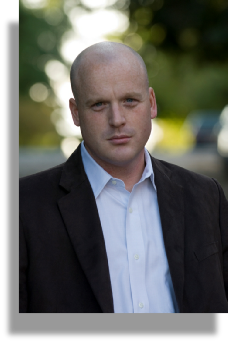

.org

Patients Often Suffer Under Twisted Medical Ethics 
by : Radley Balko
Perhaps no case illustrates the absurdities of letting morality trump medicine than that of Peter McWilliams. In 1996, McWilliams wrote a wonderful book arguing for the legalization of consensual crimes called "Ain’t Nobody’s Business If You Do."
McWilliams also suffered from AIDS and lymphoma. After California legalized medicinal marijuana in 1996, he found that smoking the drug forestalled nausea long enough for him to eat the food he needed to keep his medication down. By this time, McWilliams’ book had become very popular, and he became a popular advocate for legalizing victimless crimes. In 1997, federal agents raided his home, and arrested him for possession and distribution of marijuana. At his trial, McWilliams wasn’t allowed to tell the jury that marijuana enabled him to take his medication, nor was he allowed to use in his defense the fact that medicinal use of the drug was legal in California.
While out on bail and awaiting sentencing (and not permitted to smoke marijuana), McWilliams could no longer digest his medication. His nausea returned, and his condition deteriorated. One night while taking a bath, he choked on his own vomit, and died.
People who are hurting ought to be able to get the medication that makes them feel better. It’s better to enable someone to die peacefully than to starve them to death. Cops shouldn’t be making medical decisions. All sound pretty reasonable, don’t they?
Yet none are so cut-and-dry. The reasonable, self-evident supposition that we own our own lives and bodies, and so should be able to consent to our own course of treatment, has become entrenched in a sludge of professional ethics, social mores and political grandstanding.
It’s time we stopped mingling our morals and our medicine.
| His Life |
| from the NY Times |
| past news |
| Buy Books from Us |
| Been There, Done that, Got Our T Shirt! |
| Oh Goody! Here's my Hoodie! |
| A Batch from the Past |
| Quotes |
| Poetry |
| Peter and Computers |
| Personal Growth |
| Luxury of a Negative Thought Main Page |
| How to Survive the Loss of a Love |
| Peter's Photography |
| Ain't Nobody's Business |
| LIFE 102 |
| Kodak Moment Quotes |
| Peter's Poems: Through the Years |
| Cards |
| Valentines |
| Handwritten Poetry |
| Journal Entries |
| Computer Articles |
| computer books |
| Computer Book Reviews |
| Newsweek Dec. 21, 1987 |
| TIME Magazine Jan. 24, 1983 |
| People Weekly Sept. 19, 1983 |
| Luxury Quotes |
| Excerpts from LIFE 102 |
| Author's Notes |
| Peter's Letter (Life 102) |
| Peter Trial: Latest News |
| Checklist for Depression |
| Peter Mail |
| Can't Use MMJ as Defense |
| Drug Laws Kill |
| I, Too, Have a Dream (August 3, 1998) |
| Libertarians Remember Peter |
| Pocono Libertarians Memorial |
| Peter in Action |
| Peter's Poetry |
| Radio Interviews |
| visits with our friends |
| Peter vs. John-Roger |
| Your Story |
| sharing stories |
| Contact Us |
| His Life |
| from the NY Times |
| past news |
| Buy Books from Us |
| Been There, Done that, Got Our T Shirt! |
| Oh Goody! Here's my Hoodie! |
| A Batch from the Past |
| Quotes |
| Poetry |
| Peter and Computers |
| Personal Growth |
| Luxury of a Negative Thought Main Page |
| How to Survive the Loss of a Love |
| Peter's Photography |
| Ain't Nobody's Business |
| LIFE 102 |
| Kodak Moment Quotes |
| Peter's Poems: Through the Years |
| Cards |
| Valentines |
| Handwritten Poetry |
| Journal Entries |
| Computer Articles |
| computer books |
| Computer Book Reviews |
| Newsweek Dec. 21, 1987 |
| TIME Magazine Jan. 24, 1983 |
| People Weekly Sept. 19, 1983 |
| Luxury Quotes |
| Excerpts from LIFE 102 |
| Author's Notes |
| Peter's Letter (Life 102) |
| Peter Trial: Latest News |
| Checklist for Depression |
| Peter Mail |
| Can't Use MMJ as Defense |
| Drug Laws Kill |
| I, Too, Have a Dream (August 3, 1998) |
| Libertarians Remember Peter |
| Pocono Libertarians Memorial |
| Peter in Action |
| Peter's Poetry |
| Radio Interviews |
| visits with our friends |
| Peter vs. John-Roger |
| Your Story |
| sharing stories |
| Contact Us |